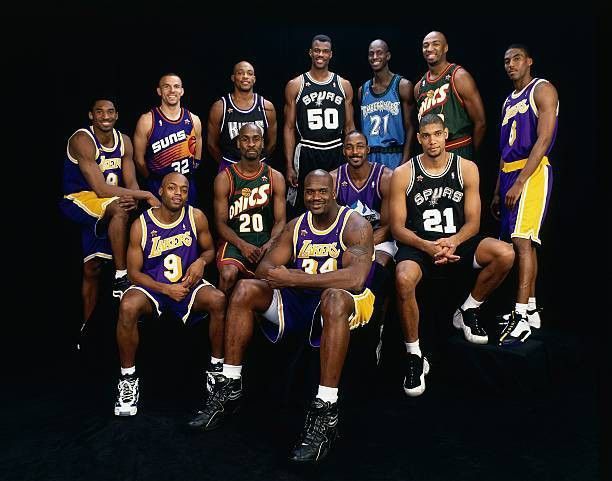One of the most meritocratic ecosystems, is competitive sports. In competitive sports, the talent is chosen no matter the noise. By noise i mean ethnic or other identity labels. Take for instance the NBA, quite possibly the most competitive sport on the planet, with billions spent on talent acquisition: Do you think they would handicap themselves with quotas? A racial minority dominates the sport, and no one cares, because it is based on merit.
Business is in many ways similar to a basketball game, you need talent, and you need a team that can play together. Yet business is now being assaulted by movements requesting quotas. Gender quotas, ethnic quotas, sexual orientation quotas … All these quotas have a fatal effect on business.
Recently the European Union announced it would require companies to adhere to gender quotas: The EU Forcing a 40% Quota for Women in Companies Managements.
Understanding the reverse-inequality discrimination.
If you have 3 types of people: green, blue and purple. Your company needs employees to precisely 2 types of tasks.
Green are very good at doing a task A, you hire a lots of greens for task A. You might also take few blues and few purples, even if they are below the standard.
For task B, all 3 are equal. But with the quota system or the pressure for diversity, you realize that you now need to hire mostly blue and purple for task B. Even if you got amazing greens that excel in doing task B.
Do you get the problem ?
In companies (in the US), especially tech companies: the vast majority of programmers and tech centered jobs go to white or Asian males. This makes it very hard for any white or Asian male to find a non tech centered jobs in these tech companies. Marketing departments and business development are being filled with women. Not because women are better at these tasks, but because companies are required to try to achieve gender equality.
I admit, women are amazing at multitasking. But, no company should cancel the male perspective in marketing, just because it need to stick to a quota. And more dangerously, no company should shut the door to talent just because it has a quota to fill. Every department of the company should have the door wide open for talent, especially marketing.
If the job is only repetitive tasks, then talent is not needed and apply quotas as much as you wish, but if you need smart creatives, then quotas have no place.
Example of reverse-inequality discrimination.
In a typical startup, the CEO feels pressured to have “diversity”. With 100 employees, they need to aim the quota for women to 40-50. They will also need to set a quota for racial minorities, and also a quota for sexual orientation (LGBTQ+). So first you fill the position where you need the best talent you can find, aka programmers and engineers.
Realizing that white and Asian men filled 75-90% of the engineers and programmers, you scramble to fill all the other none tech position with women.
Minorities quota? No problem, you hire women from minorities. Sexual orientation quota? Also no problem, you hire women from the LGBT community …
And effectively you shut off half the population from other non-tech positions.
To fill quotas, you are discriminating against all men, including those from minorities and those from the LGBTQ+ community.
But discrimination is not the real issue business wise, the real issue is that you can not hire the best employee for the job. And thus you miss out on talents in sales, marketing …
Why is talent important ?
Talent is important, because talent is what make companies thrive. A talented programmer could give your company an edge over competition. A talented salesperson can land your business the biggest deal. Talented marketers can double, triple or even 10x your company’s revenue. Again a reference to competitive sport, see how 1 man (Michael Jordan) is as important as an entire team.
The Facebook case study of reverse-inequality discrimination.
A 2022/2023 analysis of Facebook employees, clearly show how quotas are not only bad for business, but also discriminate against the qualified and talented individuals that are not within the group of individuals covered by quotas.
women make up only a third of the total global Facebook workforce.
The disparity is most felt in the tech department where women make up less than 25% of the employee count. The business and sales department has reverse-inequality; women outnumber the men three to one.
As explained in the example above, tech jobs are very competitive. Tech companies try to do their best to find the best talent. Even with all the pressure pushing for more women in tech positions, we see that Facebook managed to have 23%. The percentage 23% is actually deceiving, because if you take away the not really tech jobs in the department (team leaders/ managers / others), i am sure the percentage can drop to 15% or less.
because this position is based on merits and does not need to follow a quota or be influenced by a quota.
Leadership, is a prime example of the pressure for quotas. Even-though women make up less than 25% of the employees count, they get to have 40% of directors positions, again not based on merit, but quotas for diversity.
This graph proves the point i made in the example, in tech jobs we seek the best talent, hence Asians have a big percentage (usually Indian programmers), In none technical we fill the missing quotas, and usually we choose women that can fill more than one quota (ethnic/orientation).
What if, businesses just focused on merits ? Politicians might not like this idea, but since when politicians relied on merits?
